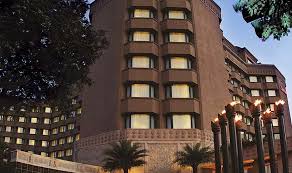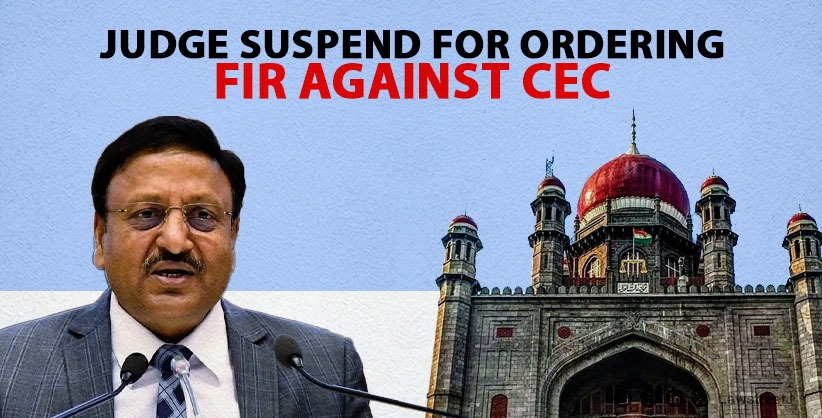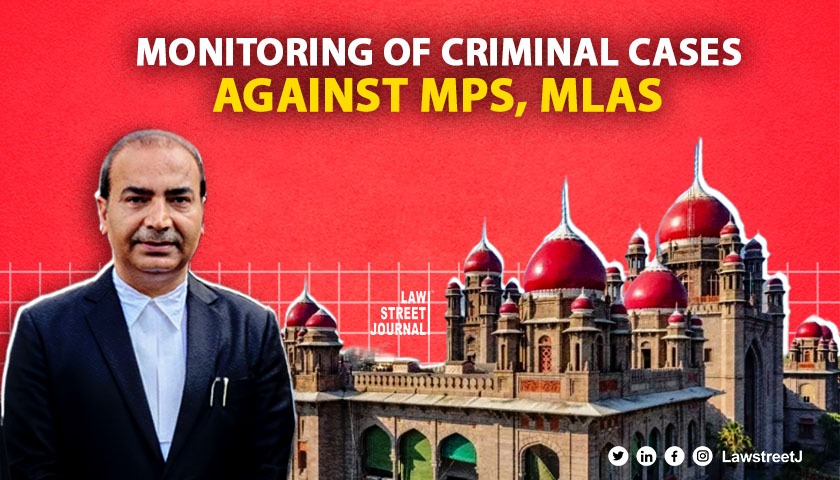HYDERABAD: The Telangana High Court has come to the rescue of 5-star hotel Marriott's property against claims by the Telangana State Wakf Board. Reports state that the High Court has recently issued a writ of prohibition against the Wakf Board - which was repeatedly claiming Marriot's property as Waqf property, despite a 1968-High Court against its claim.
A division bench of Chief Justice Alok Aradhe and Justice Anil Kumar Jukanti hearing the matter, noted, successive attempts had been made on behalf of the Wakf Board to claim the subject property as wakf property, despite determination of the question by the Wakf Board itself as long back as on 05.10.1958 itself under Section 27 of the 1954 Act that subject property is not a wakf property, and held that the initiation of the proceeding(s) by the Wakf Board is in excess of jurisdiction.
It also issued a writ of prohibition, directing the Board not to proceed further with the eviction proceedings against the Marriott Hotel.
Importantly, the court noted that in the present case, the Wakf Board itself had conducted an inquiry into the nature of the property and passed a resolution in 1958 that the property in question is not a wakf property.
In the instant case, the Wakf Board conducted an enquiry under Section 27 of the 1954 Act and determined vide resolution dated 05.10.1958 that the subject property is not a wakf property, the bench noted.
Moreover, in September 1968, the Andhra Pradesh High Court had also prohibited the Board from reopening the matter, ruling that once determination has been held under Section 27 of the 1954 Act that subject property is not a wakf property, it would not be permissible for the Wakf Board to examine the issue again.
However, the dispute arose once again before the Telangana High Court with the Wakf Board making repeated claims on the property.
Viceroy Hotels Limited, which owns and runs the Marriott Hotels in Hyderabad moved Court seeking relief after newspaper reports indicated the Wakf Board's intention to evict them.
Facts
An inquiry under the Section 27 of Wakf Act, 1954 regarding the nature of the said property was conducted in 1958.
It was determined by the Wakf Board by way of a resolution on October 5, 1958 that the subject property did not belong to the Wakf.
However, in 1964 one Abdul Gafoor filed a civil suit asserting the property's Wakf status.
In 1968, the Andhra Pradesh High Court passed an order prohibiting the Board from reopening the matter, stating that the Boards previous resolution classifying the property as not Wakf property was final as per the Act.
However, despite this order the Board persisted in its claims.
The hotel challenged the actions of the Andhra Pradesh State Wakf Board, particularly regarding an addendum notification issued on 23rd August 2007 and the initiation of proceedings under Section 54 of the Wakf Act, 1995.
Despite legal challenges and court interventions, including a High Court order in 1968, the Wakf Board persisted in its claims. Over the years, the Wakf Board issued notices and initiated proceedings, with the most recent action being taken in 2014.
Subsequently, the Wakf Board issued a notification on July 12, 1984. Later, it also issued a notice to the Hotel in around 1998 under Section 54(1) of the 1995 Act alleging encroachment by the Hotel. The Hotel denied the Boards claim, after which no action was taken for 7 years.
However, another notice was issued by the Board in 2005, again asserting that the subject land was Wakf property, which was again denied by the Hotel in a detailed representation.
Thereafter, after 23 years of its original notification in 1984, it issued an addendum in 2007.
In 2014, the Wakf initiated eviction proceedings against the Hotel under Section 54 of the 1995 Act.
Courts findings
The court highlighted Section 27 of the Act, which empowers the Wakf Board to determine whether a property is a Wakf property, and pointed out that under Section 27(1) the decision of the Board under Section 27(1) is deemed final unless revoked or modified by a civil court.
It also assessed the validity of the errata notification issued by the Wakf Board after 23 years in 2007.
It held that errata notifications are only meant to correct typographical or clerical errors in original notifications and cannot expand the scope of the original notification.
However, in the present case, the contents of the errata notification constituted a fresh notification, as they included a significantly larger area of land.
The Court reasoned that such an action went beyond corrections, amounted to substitution of the original notification of 1984 and required a proper inquiry or survey report.
It thus held that the initiation of proceeding itself is vitiated in law, in this case, and thus, the hotel, i.e. the petitioners cannot be allowed to suffer legal injury merely because they have a statutory remedy available under the 1995 Act









!['No common intention to kill,' SC alters conviction from murder to culpable homicide not amounting to murder [Read Judgment]](/secure/uploads/2024/02/lj_7197_f77c706e-b667-41fe-9c36-9e633e880b85.jpg)
![Remaining silent during an investigation is a fundamental right: Telangana HC [Read Judgment]](/secure/uploads/2024/04/lj_3728_c8f7ecd3-a0e9-44f7-85aa-f77b9dae3a49.webp)






